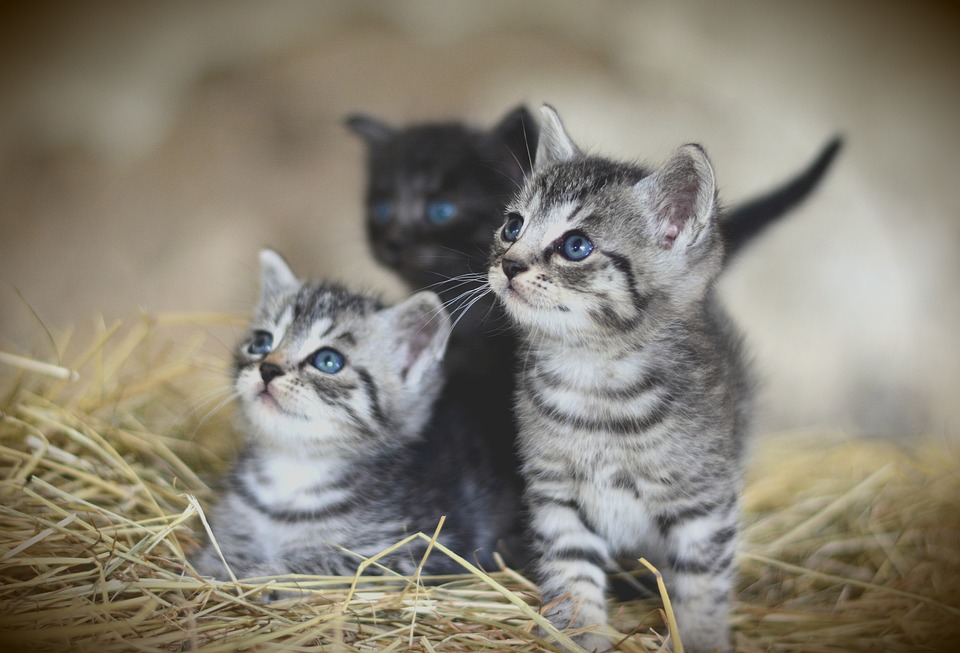Cats, known for their independent nature, can also experience stress and anxiety just like humans. As responsible cat owners, it is essential to be aware of the signs of stress in our feline friends and take appropriate measures to alleviate their discomfort. In this article, we will discuss how to identify the signs of cat stress and provide effective ways to handle it.
Signs of Cat Stress
Cats may exhibit various signs when they are feeling stressed or anxious. Identifying these signs early can help prevent further escalation of stress-related issues. Here are some common indicators that your cat may be experiencing stress:
1. Changes in Behavior: A stressed cat may show sudden changes in behavior, such as increased aggression, excessive vocalization, or withdrawal from social interactions. They may also become more clingy or demand constant attention.
2. Litter Box Issues: Stress can lead to litter box problems, such as inappropriate urination or defecation outside of the litter box. This behavior may be an indicator that your cat is feeling stressed or anxious.
3. Loss of Appetite: If your cat suddenly loses interest in food or experiences a significant decrease in appetite, it could be a sign of stress. Keep an eye on their eating habits and consult a veterinarian if the issue persists.
4. Excessive Grooming: Cats tend to groom themselves regularly, but excessive grooming can be a sign of stress. If you notice bald patches, irritated skin, or excessive hairballs, it is crucial to address the underlying stressors.
5. Hiding or Avoidance: Cats often find solace in hiding when they feel stressed. If your cat starts hiding in unusual places or avoids interactions, it may indicate that they are experiencing stress.
Effective Ways to Handle Cat Stress
Now that we have identified the signs of cat stress, let’s discuss some effective ways to handle it and create a stress-free environment for your furry friend:
1. Ensure a Safe and Comfortable Environment: Cats require a calm and secure environment to thrive. Provide them with cozy hiding spots, comfortable bedding, and vertical spaces like cat trees or shelves. These will give them a sense of security and control.
2. Establish a Consistent Routine: Cats are creatures of habit, and disruptions to their routine can cause stress. Stick to a consistent schedule for feeding, playtime, and litter box cleaning. This stable routine will help alleviate stress and anxiety.
3. Provide Enrichment and Mental Stimulation: Boredom can contribute to cat stress. Engage your cat with interactive toys, puzzle feeders, and scratching posts to keep them mentally and physically stimulated. Rotate toys regularly to avoid monotony.
4. Create a Quiet and Peaceful Environment: Cats are sensitive to noise and commotion. Designate a quiet area in your home where your cat can retreat when they need some downtime. Minimize loud noises, such as vacuum cleaners or loud music, to reduce stress triggers.
5. Use Pheromone Products: Synthetic pheromone products, like Feliway diffusers or sprays, can help create a calming environment for cats. These products mimic natural feline pheromones that promote relaxation and reduce stress-related behaviors.
FAQs about Cat Stress
Q: Can changes in the household cause stress in cats?
A: Yes, cats are creatures of habit, and any significant changes in their environment, such as moving to a new home or the arrival of a new pet or family member, can cause stress.
Q: How long does it take for a stressed cat to recover?
A: The time it takes for a stressed cat to recover varies depending on the individual cat and the underlying stressors. With appropriate measures, it can take anywhere from a few days to several weeks for a cat to regain their sense of calm.
Q: Should I consult a veterinarian if my cat is stressed?
A: If you notice persistent signs of stress in your cat or if their behavior changes suddenly and significantly, it is advisable to consult a veterinarian. They can rule out any underlying medical issues and provide guidance on managing stress.
Q: Can I use medication to treat cat stress?
A: In severe cases, a veterinarian may prescribe medication to help alleviate cat stress. However, medication should always be used as a last resort and under the guidance of a professional.
Remember, a stress-free cat is a happy cat. By recognizing the signs of stress and implementing effective strategies to manage it, you can create a harmonious environment that promotes your cat’s overall well-being.








